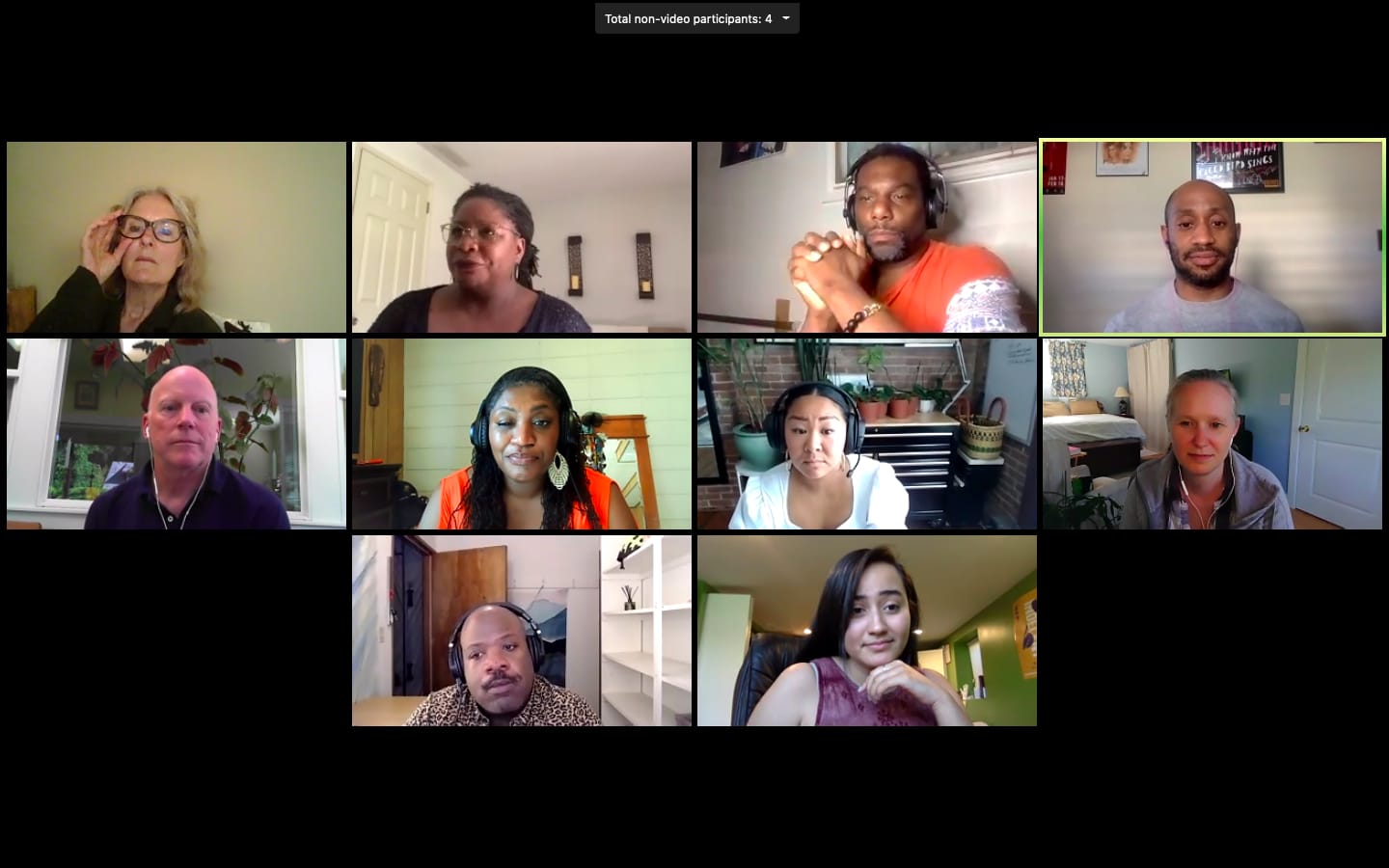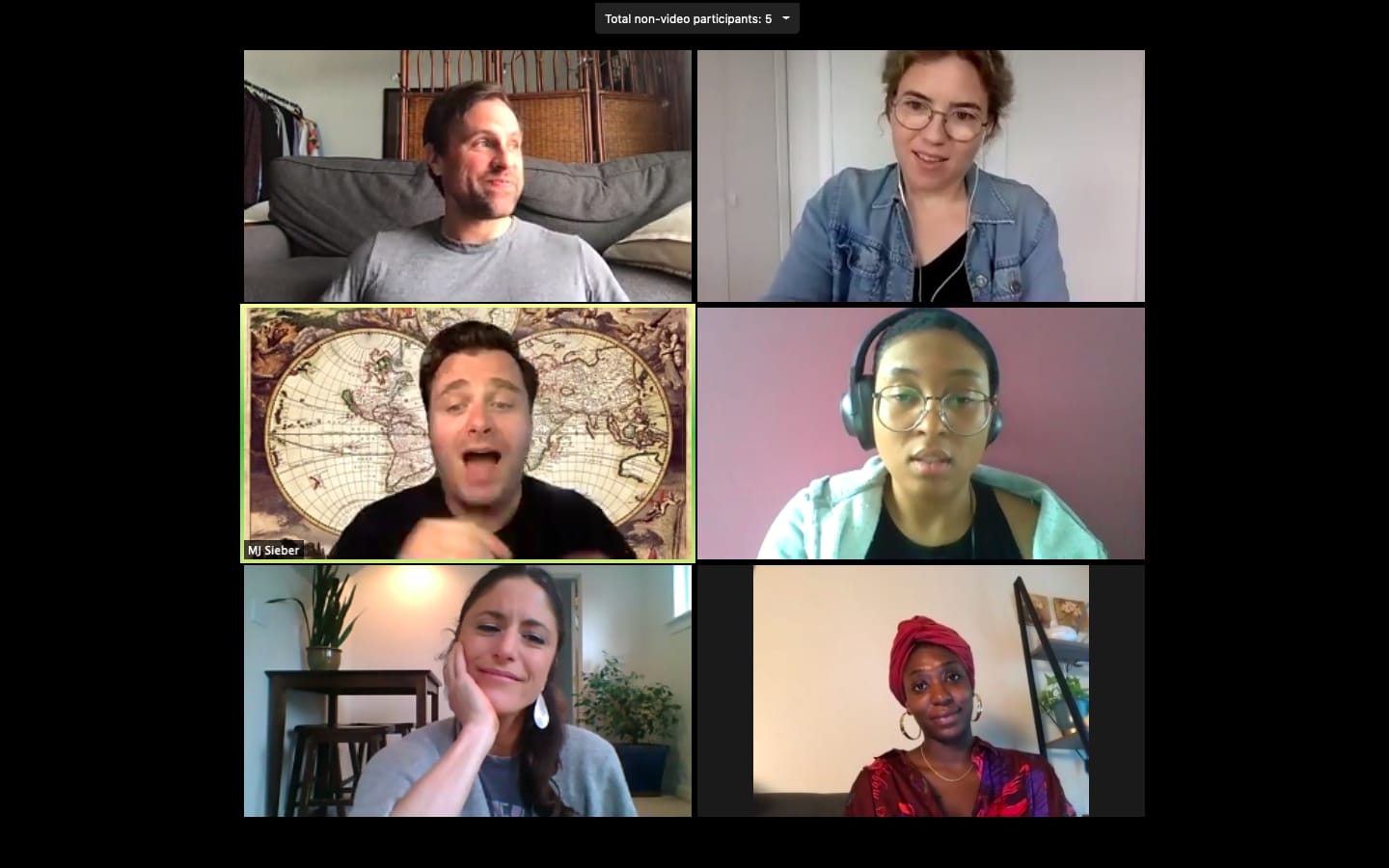INTERVIEW
Responding to the Present Moment
We sat down (well, virtually!) with our Director of Casting & New Play Development Kaytlin McIntyre to discuss why it’s important to keep creating new plays while theaters are dark.

Seattle Rep: How is Seattle Rep continuing to develop new work right now?
Kaytlin McIntyre: We were really proud of how Seattle Rep’s 2019/20 season showcased our investment in new work with The Great Moment and Shout Sister Shout!, and disappointed to see it get cut short before we could premiere Lydia and the Troll. As we have moved into the virtual sphere, we are starting an online Other Season, with workshops and readings taking place over Zoom. The goal is to keep Seattle Rep’s new play development moving forward even while we cannot welcome artists into our building. We are taking advantage of the relative quiet of this moment within the field of theater to connect with writers and artists who have challenging schedules. There is one workshop that we have been trying to organize for two years, but the artists involved are so busy that we have never been able to find a time for them to come to Seattle—and we’re finally getting it on the calendar! This is an opportunity to work with writers who are based all over, while continuing to invest a lot in local artists and playwrights and provide a virtual venue to develop their work.
This is also a good moment for Seattle Rep to be commissioning new work and building up our pipeline, when artists have more time to write—so be on the lookout for an announcement about a major new investment in that area later this year.
SR: Why do you think it is important to continue creating new plays right now?
KM: We have a unique opportunity right now to respond to the present moment in our new work programming, which we are often not able to do since we are usually scheduling things so far in advance. In planning our online Other Season, it’s been interesting for me to think about the ways in which writers, even if they wrote their pieces before coronavirus hit, are in conversation with our current moment and to see how their pieces will shift. What new perspective might they bring with the pandemic? What will the resulting work have to say about the events we are living through right now?
I’m also feeling passionate about supporting living artists. This crisis has only made it more apparent to me why theater and art is important, and why having a shared empathetic experience with other people is vital to the human race. In order to do that we need to have artists who are thriving and able to pay their bills, and that includes writers.

Jeanne Paulsen, Tracy M Hughes, Reginald André Jackson, Lamar Legend, Peter Crook, Shaunyce Omar, Sara Porkalob, Jessica C. Bomball, Nathaniel Tenenbaum, and Annika Perez-Krikorian in a virtual Other Season workshop of Three Soldiers by Lamar Legend.
SR: Do you think there is an effective way to create theater virtually?
KM: I think that virtual theater still gives us access to the written word. As someone who works in the industry and isn’t just seeking out theater for entertainment, I’m watching shows to see if I’m interested in a writer’s voice and would like to connect them to Seattle Rep. Nothing replaces being together in the same room and being in the moment, but there is still a way for an online experience to be successful.
We went through a journey in considering how to put together the online Other Season. At first it was just going be a series of readings of finished plays, but then we determined that didn’t serve a function on Seattle Rep’s end. You can’t get much sense of an audience’s reaction to a play online, so a virtual reading wouldn’t help us know whether a play would be a good fit for one of our upcoming seasons. So instead we really refocused the work to benefit writers who are still in early development and may never have heard their play out loud before. It’s important to be clear about what you are trying to do with online work—who is this for, who are you trying to connect with, and what is your goal.
SR: What else is Seattle Rep doing to help playwrights and artists while the theater is closed?
KM: We have put together an Artist Resource Guide, which provides a list of grants, emergency relief funds, and guidance about how to apply for unemployment.
We are also employing artists through our online engagement programs. We’ve seen such a great response to this programming, and I think that’s partly because people really want to hear from artists right now. Connecting artists to patrons is one of our primary functions, and while right now it might not always look like performance (Julie Briskman who starred in our 2018/19 production of Tiny Beautiful Things is writing an advice column!), it’s still a great way to share their gifts and connect people.

Aaron Blakely, Emily Chisholm, MJ Sieber, Varinique Davis, Alexandra Tavares, and Porscha Shaw in a virtual Other Season workshop of Dragons by Melanie Hampton.
SR: How does new work fit into Seattle Rep’s vision of theater at the heart of public life?
KM: Our mission is to connect audiences with extraordinary artists, and new work really lives at the crossroads of that. Every play that you’ve ever loved was once a new work. Even Shakespeare was once an emerging playwright! I think it’s really important to invest in artists at every stage of their career because you never know who is going to have the next Hamlet in them. What thrills me about new work is that there is a higher level of risk involved, but when something lands, it feels like the reward is even more potent. We’ve taken risks on shows that have become cultural touchstones. For example, Come From Away was about 9/11, a traumatic event many people were hesitant to revisit, so it was not a sure thing when we signed on to co-premiere it. Even plays that have become big hits for us were new plays in development at one point.
Read about The Other Season, and hear more about our New Works program from the Seattle Rep New Works team:





